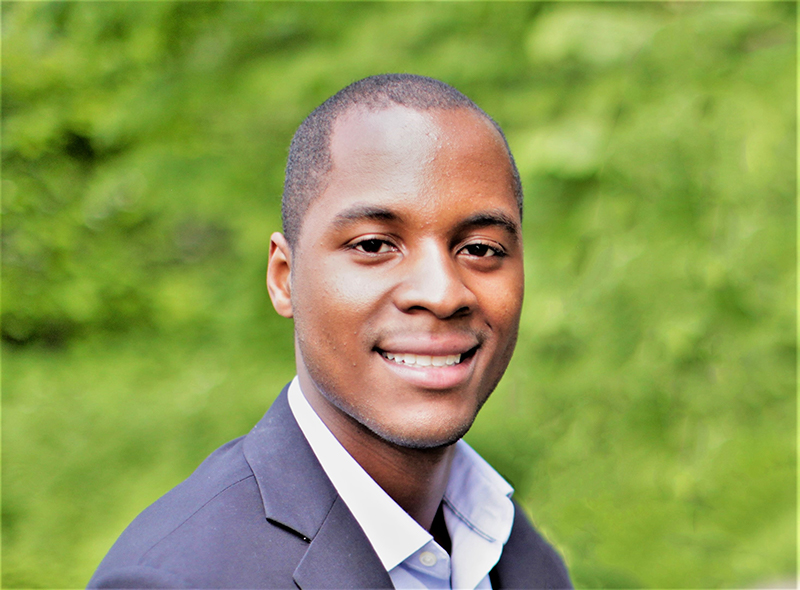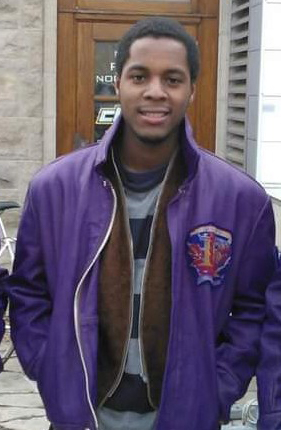Since graduating from Engineering Chemistry in 2016, Jeremy Gooden has made his way through the consulting industry, partnering with major companies world-wide to solve their most important problems. In this Q&A interview, Jeremy tells us about his day-to-day work, what he wishes he knew before entering the workforce, and what it means to be a successful consultant.
What does Strategy& do?
Strategy& is a strategy consulting firm that operates around the world. We partner with leading companies around the world to solve their most important issues. An example would be helping telecom companies roll out 5G. With COVID right now it could be how to help countries better recover from COVID.
Why did you decide to work there?
When I was in fourth year, in general I really liked problem solving from engineering and I wanted to work on more impactful issues and challenges. In fourth year I felt like I didn’t know if engineering would fit that for me. As I did more research and thought about it, I found that these bigger problems tended to be more in business and society. When I did more research on what I wanted to do after graduation, consulting was top of the list for me because consultants work on the biggest problems in business and society to help advance the world and help these companies go forward.
What does a typical day look like for you?
There are a subset of activities that make up 80% of my day. With individual work it could be analyzing data to generate insights that would inform recommendations to our clients. Taking 5G as an example, it may be analyzing market trends and consumption data to recommend how to roll out and perceive 5G. It could be writing reports to summarize findings and our recommendations. In a more team-based setting it could be brainstorming, breaking down problems and solving them. As you get further up you might review more junior team members’ work and coach them as they progress. Then there is working with clients. Since we’re doing the work for clients, they ask us a question and we suggest what they should do; it is very much a collaborative environment. We’ll work with them to co-create, we’ll problem solve together, and then present our findings to them.
Back when COVID wasn’t a thing, a week would consist of a lot of travel and being in airports and hotels to travel to the client’s site, but right now we don’t have to do that.

Why did you choose to go into Engineering Chemistry? In what ways has your discipline influenced your career?
I really enjoyed math and chemistry, and even just from those two, there are many different fields you can specialize into. However, I did know that the Eng-Chem program would have more chemistry than the traditional Chem-Eng stream, and so I though it would be a good fit. Coming from high school, I was dead set on getting a PhD and doing hardcore science and engineering. I thought a good way to test if I would like to do graduate work was to do a thesis in undergrad, and the Eng-Chem program had a requirement to do a thesis in fourth year. So then I said that if I liked the thesis, I would keep going with the graduate track. If I didn’t then it would be a good sign to say that this isn’t for me.
Like a pH test, it was “too acidic for me.”
What was your career path? Internships/first job?
In second year, I worked for Microsoft as a brand ambassador which was pretty interesting. And then fourth year I had two jobs: one, I was a teaching assistant for Mod 3, and the other I was like a transitions person for first years, to help them climatize to university and academics.
In terms of summer jobs, for first year I worked in the chemistry lab with Dr. Michael Mombourquette, which was probably the best job I ever had. The summer of second and third year I worked out west. First was out in the middle of nowhere in Alberta working in petroleum engineering, and then third year summer it was working in Calgary at Cenovus Energy.
Once I graduated, I actually did start out west in Calgary because at the time I enjoyed the petroleum and gas industry. Unfortunately, at the time the industry was not doing so well, so it was not the best experience. After seven to eight months, I transitioned back to Toronto where I grew up. Over the four and a half years now, some of the work that I have done has been in the oil and gas sector, in government and healthcare, telecommunications, and overall worked in more ‘engineering’ type industries. For example, I did a transportation infrastructure project for four months, helping redeliver and manage capital projects, which was a nice ode to civil engineering.
What is your greatest success so far in industry?
Most recently, the best experience I’ve had so far in consulting is a project I did in collaboration with the UN, Microsoft, DHL, International Chamber of Commerce, and other organizations to help countries recover better from COVID, which goes back to me liking big problems that have an impact. For me that was very rewarding.
How has your time at Queens shaped your career?
On top of it being a test to see if I would like doing graduate work, I would also say in terms of the soft skills that you learn from the engineering program, such as working in teams, was very valuable in consulting and learning how to work in new teams and how to achieve a solution or a common goal. I learned how to prioritize in school as well. Before I started undergrad, I was already behind on homework and I never finished all of it. With the different volunteer roles and the jobs, I had to figure out how to optimize the variables to get the best outcome. In consulting, there are lots of different things you can analyze, but you must prioritize what is going to give clients the most value and help them obtain that. Those two things, teamwork and prioritization, helped to shape my career.
On top of that, if there is one big thing that I learned in undergrad as an engineer, it is that I learned how to learn; and even after figuring that out, I am still learning how to learn best.

How does ethics play a role in your career?
Whenever we work with clients to help them figure out solutions to their problems, we have to make sure it’s ethical and that there are not back-door things happening. We always try to have the best in mind for our clients. Even if a recommendation is against what our clients think, you have to remember that you’re an impartial third-party advisor, and you don’t just want to play to what they want to hear. You have to use the data and the evidence to advise clients on the best way forward.
We’re not lawyers so we can’t give legal advice, and we always emphasize that; but we always try to make sure we are impartial and data-driven in our recommendations.
What do you wish you knew before entering the workforce?
The biggest thing that I have learned in the industry is that you don’t need to know everything for your job, which is different from university because you have courses and exams, and you need to know everything on the exam in order to do well. When I hit the workforce, I realized that everybody has their natural strengths and weaknesses, and I was trying too hard to get beyond my weaknesses. Then I noticed that there are people at companies who can perform skills better than you where you are weaker, and they would coach you or they might do it for you. So instead of trying to be perfect across the board, like in a school exam, I realized that you have to play to your strengths to make you stand out, and improve your weaknesses to a certain degree so then they don't hinder you.
As an example, what is important is our industry is quantitative skills, which I am decent at. My greatest strength is working with clients and leading teams. My quantitative skills may not be that of a data scientist or a coder because if I do need to code, I would ask someone for help.
What personal characteristics do you feel are necessary to become a successful consultant?
There are a couple of core skills you should know. One would be quantitative skills, such as analyzing data to help make decisions on revenue growth. You have to be able to use data and evidence to quantify decisions. The other one is people skills, or qualitative skills, such as learning how to interface with the client and the team. So there is a big emphasis on just working with people.
Apart from those table stakes, I would say the biggest characteristic would be just general intellectual curiosity. Like generally being interested in how things work and why things work. With an example in retail, let’s say you’re on a project fresh out of school, and you’re thinking ‘I don’t know a thing about retail’; but then you ask, ‘why is there a loss in revenues?’ Then you can draw conclusions from that, such as it seems a lot of people are buying clothes online and it looks like our client doesn’t have an online presence. Maybe if they had an online presence, they could boost sales. It’s the natural curiosity of thinking ‘Why?’ and ‘How?’ that helps you really enjoy consulting in general.